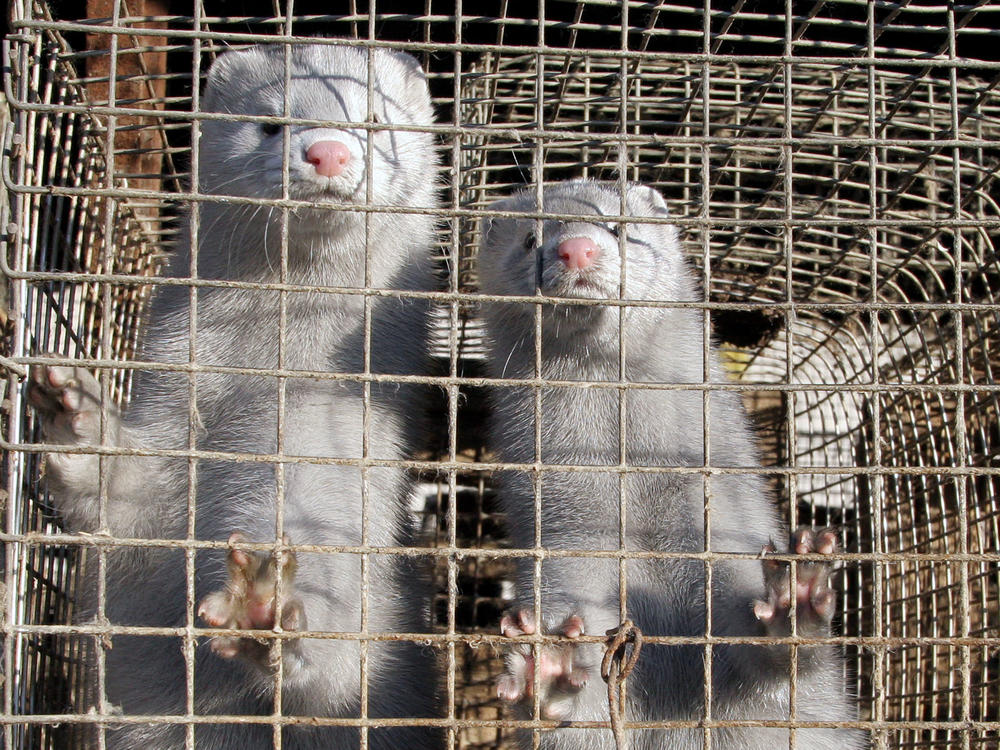Section Branding
Header Content
Israel Has Become The 1st Country To Ban The Sale Of Most Fur Clothing
Primary Content
The Israeli government has banned the sale of fur in the fashion industry, becoming the first country to outlaw the controversial clothing material that opponents say leads to the slaughter of millions of animals each year.
Gila Gamliel, now the former minister of environmental protection following her party's defeat Sunday in the Israeli Knesset, called the fur trade for the fashion industry "immoral and unnecessary" when she signed the ban last week.
"Together, we will make the Israeli fashion market more environmentally friendly and do kindness to animals!" Gamliel tweeted.
Israel's ban on the sale of fur will take effect in six months.
Yet it's unclear just how far the ban will go toward preventing fur from coming onto the market in Israel, given that the country's warm climate can make wearing fur impractical. An exemption to the ban will also allow sales to continue for ultra-Orthodox Jewish men, many of whom wear fur head coverings as a matter of their faith.
A religious exemption lets some fur sales continue
Israel's fur ban includes several carve-outs, including one for educational reasons and another that permits residents to buy skins and pelts for religious purposes.
That means that married, ultra-Orthodox Jewish men will still be able to buy rounded fur hats known as shtreimels. (The vast majority of ultra-Orthodox Jewish men wear head coverings, the Pew Research Center found.)
A shtreimel is typically made of the fur from the tails of the Canadian or Russian sable, the stone marten, the baum marten or the American gray fox, according to the Jewish Virtual Library.
Although some shtreimels are now made with fake fur, critics say the religious exemption makes the fur ban less powerful than it could have been.
"If anything Gamliel's decision created additional moral escape-hatches: She could have eschewed the exemption and the outliers, too, could have been persuaded to adopt fake fur," journalist Avshalom Halutz wrote in Haaretz last year after the ban was proposed.
Opposition to the fur trade has been growing
Still, critics of the global fur industry applauded Israel's prohibition on fur sales, which the animal rights organization People for the Ethical Treatment of Animals called a "historic victory."
It was the latest development in an ongoing effort by animal rights activists to put an end to a practice they say causes cruelty to animals for no reason other than to manufacture clothing and fashion accessories, and the industry is responding.
The United Kingdom banned fur farming in the early 2000s, and other European countries including the Netherlands, Belgium and the Czech Republic have also taken steps to end the practice, according to Humane Society International.
In 2019, California became the first U.S. state to enact a law banning the sale of fur products, which takes effect in 2023.
A number of fashion retailers such as Nordstrom, as well as high-profile brands including Prada and Versace, have also said they would stop selling fur in response to reports of cruelty in the fur trade.
About 100 million animals are bred and killed each year to supply fur to the fashion sector, Humane Society International estimates.
Copyright 2021 NPR. To see more, visit https://www.npr.org.

